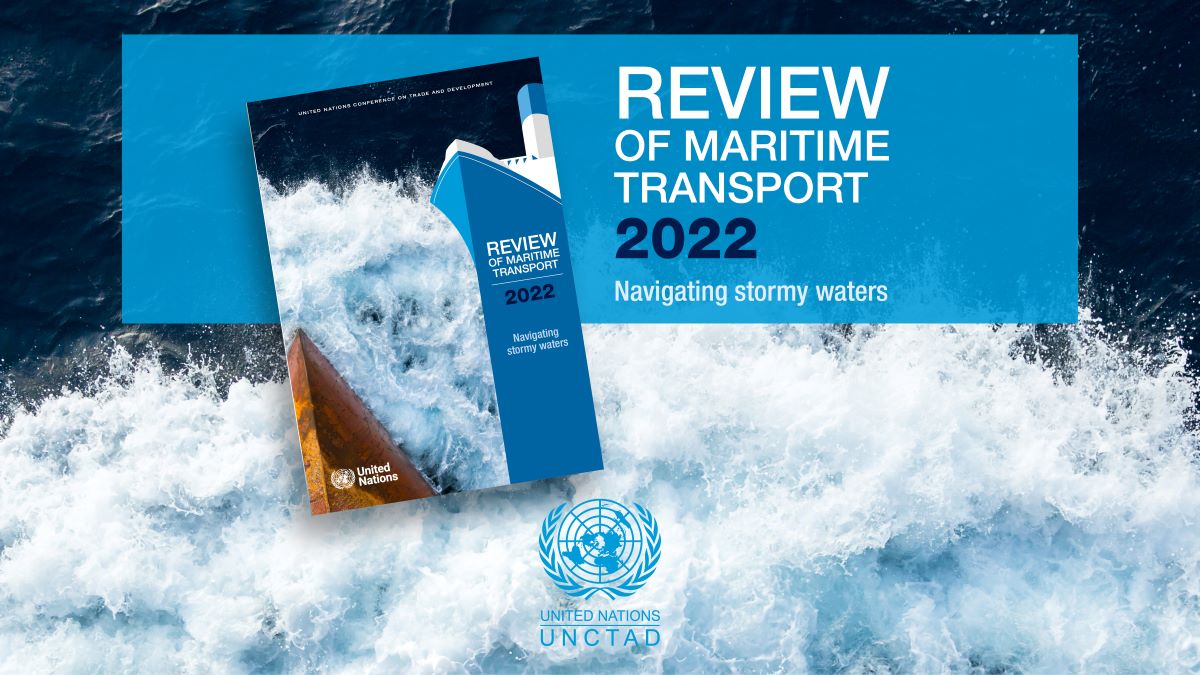The UN Conference on Trade and Development (UNCTAD) in its flagship “Review of Maritime Transport 2022” has called for increased investment in maritime supply chains. Ports, shipping fleets and hinterland connections need to be better prepared for future global crises, climate change and the transition to low-carbon energy.
The supply chain crisis of the last two years has shown that a mismatch between demand and supply of maritime logistics capacity leads to surges in freight rates, congestion, and critical interruptions to global value chains.
Ships carry over 80% of the goods traded globally, with the percentage even higher for most developing countries, hence the urgent need to boost resilience to shocks that disrupt supply chains, fuel inflation and affect the poorest the most.
“We need to learn from the current supply chain crisis and prepare better for future challenges and transitions. This includes enhancing intermodal infrastructure, fleet renewal and improving port performance and trade facilitation,” UNCTAD Secretary-General Rebeca Grynspan said. “And we must not delay the decarbonization of shipping,” she added.
Logistics supply constraints combined with a surge in demand for consumer goods and e-commerce pushed container spot freight rates to five times their pre-pandemic levels in 2021, reaching a historical peak in early 2022 and sharply increasing consumer prices. The rates have dropped since mid-2022 but they remain high for oil and natural gas tanker cargo due to the ongoing energy crisis.
Dry bulk freight rates increased due to the war in Ukraine and related economic measures, as well as the prolonged COVID-19 pandemic and supply chain disruptions. An UNCTAD simulation projects that higher grain prices and dry bulk freight rates can lead to a 1.2% increase in consumer food prices, with higher increases in middle- and low-income countries.
Weakening global maritime trade growth
In its report, UNCTAD predicted that global maritime trade growth would moderate to 1.4% this year and remain at that level in 2023. This compared with estimated growth of 3.2% in 2021 and overall cargo volume of 11 billion tonnes, versus a 3.8% decline in 2020.
For the overall 2023-2027 period, growth is predicted at an annual average of 2.1%, representing a slower rate than the previous three-decade average of 3.3%.
Moreover, UNCTAD cautioned that “downside risks are weighing heavily on this forecast.The recovery in maritime transport and logistics is now at risk from the war in Ukraine, the continued grip of the pandemic, lingering supply-chain constraints, and China’s cooling economy and zero-COVID policy, along with inflationary pressures and the cost-of-living squeeze.”





